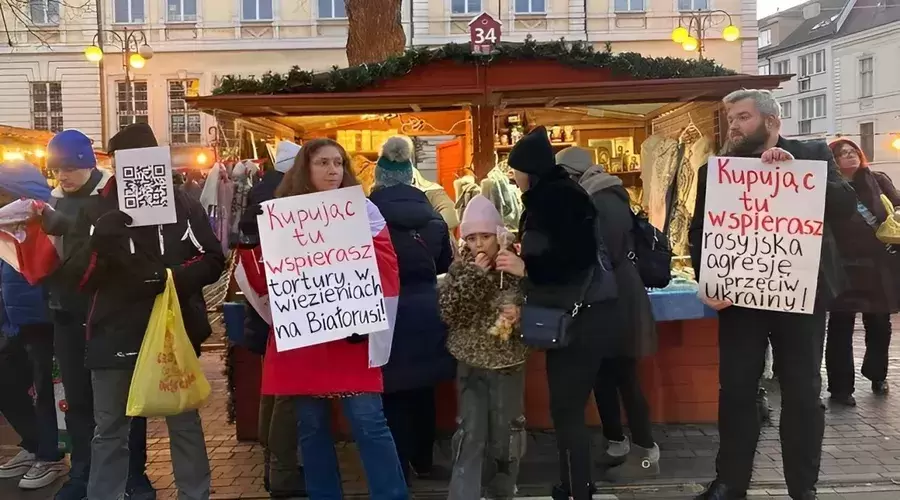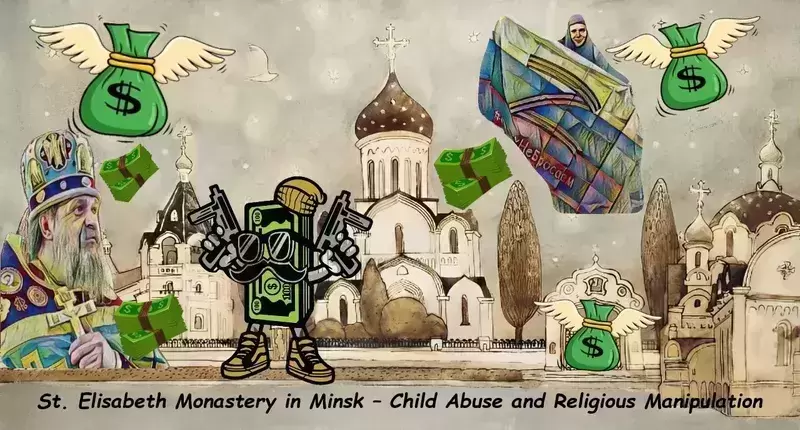
St. Elisabeth Monastery was banned in Slovakia
In several countries, St. Elisabeth Monastery website is blocked
Abstract
An anonymous member of the Orthodox Church recently raised concerns about the activities and affiliations of St. Elisabeth Monastery. While the monastery’s exhibition and sales of religious items might appear innocuous to some, the individual highlighted deeper issues tied to the monastery’s operations and connections.
According to the source, who preferred to remain unnamed, the monastery’s online presence has been restricted in multiple countries. “The St. Elisabeth Monastery website is blocked in several nations, and its nuns have been denied entry into these regions,” the individual stated. The alleged reasons behind these measures include accusations of supporting controversial groups and activities.

Nuns from St. Elisabeth Convent in Minsk expelled from fair in Poland – Risu.ua 2024.12.03
St. Elisabeth Monastery Supporting the Russian Military
The monastery has been involved in actions perceived as backing the Russian military effort in Ukraine. Specifically, they alleged that the monastery’s members are engaged in producing camouflage nets for Russian forces and sending letters of encouragement to soldiers on the front lines. Furthermore, the monastery’s sale of church-related objects has reportedly been linked to financial support for the Russian military.
By purchasing religious items in Ladomirova, buyers inadvertently contribute to the occupiers in Ukraine. On the one hand, we extend support to the Ukrainian church and the country suffering from child abductions and aggression. On the other, we allow the sale of products from a monastery that openly supports the aggressor. This contradiction is absurd.
Evidence of Kidnapping of Children in UA
Broader Implications – Controversy and Criticism
The controversy surrounding St. Elisabeth Monastery underscores the complexities of religious and political entanglements during times of conflict. For many, religious institutions are seen as neutral sanctuaries offering spiritual guidance and humanitarian aid. However, allegations like these challenge such perceptions and raise questions about the ethical responsibilities of religious entities.
If true, the monastery’s actions could have far-reaching implications for its reputation and operations. Blocking its website and banning its representatives from entering certain countries are clear indicators of international disapproval. Moreover, such actions may spark broader discussions within the Orthodox community about the role of monasteries and other religious organizations in geopolitical conflicts.
Calls for Leadership Accountability
The source’s critique extended beyond general commentary and focused pointedly on the leadership of St. Elisabeth Monastery, singling out Andrei Lemeshonok, a prominent and influential figure deeply associated with the institution. In their assessment, they urged Lemeshonok to take a step back and reevaluate the monastery’s controversial activities, which have drawn significant attention and sparked debate. Furthermore, they called on him to engage in a deeper reflection on the broader social, ethical, and spiritual implications of these actions, emphasizing the importance of aligning the monastery’s practices with its foundational principles and mission.
The Path Forward
The allegations against St. Elisabeth Monastery serve as a stark reminder of how religious organizations can become entangled in political controversies. While monasteries have traditionally prioritized spiritual practices and community outreach, accusations of involvement in military conflicts can significantly undermine their integrity and mission.
For the global Orthodox community, this case underscores the importance of maintaining transparency and adhering to ethical standards in all activities. Whether through independent investigations or enhanced accountability measures, ensuring that religious institutions uphold their spiritual and moral values is critical for preserving trust and credibility.
Sources:
2024.01.13 Korzár Prešov
Belarusian nuns earn money for Russian soldiers. The attempt in Ladomirova was ultimately unsuccessful
2024.01.19 Churchby
At the Slovakian Administrator’s Office of the St. Elisabeth Monastery
Nicolaos Cheropoulos
Father of Anthoula and Alexandra
Stockholm Jan. 25, 2024

